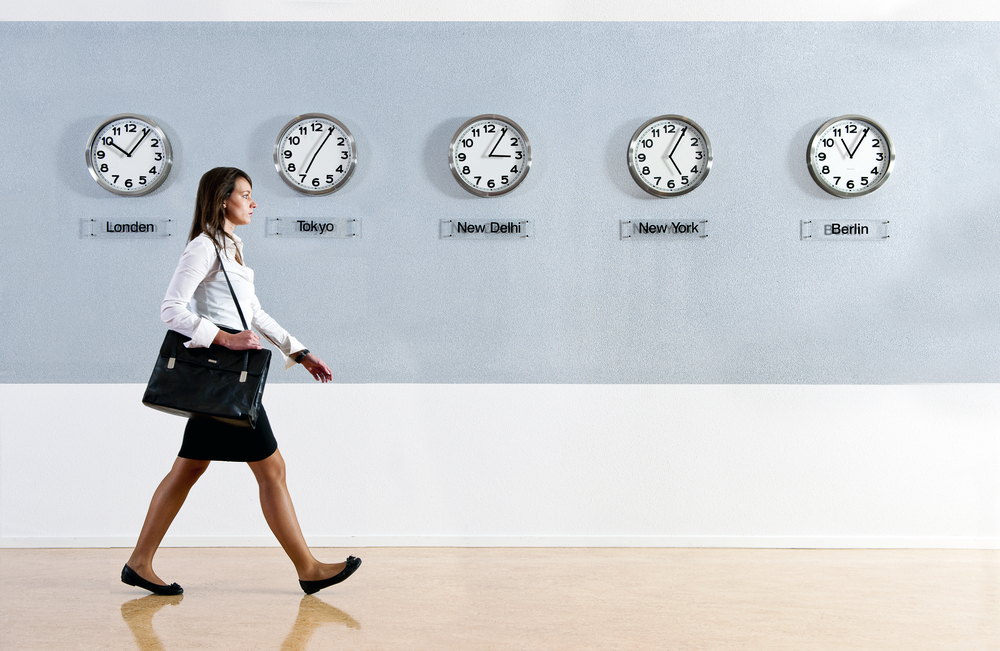
Travel is an essential part of the job for most CEOs. Some may see it as a productive, even adventurous time, while others may dread the waiting, transportation issues and jet lag.
Proper preparation can help a trip start in the right direction. Here are a few tips on how to get organized for a positive experience on the road.
Be ready to meet anywhere
For the sake of time and efficiency, CEOs will need to be flexible and willing to meet in places other than a business conference room. It may not be ideal, convenient or even comfortable. Lucy Marcus, CEO of Marcus Venture Consulting, shares some of her international travel tips in a story for the BBC.
“Sometimes meetings have to be grabbed wherever they can,” she explains. “If I’m flying to Rome and I need to meet someone in Munich, I’ll arrange for a quick layover in Munich and we’ll meet at the airport. A couple of months ago, two people I needed to meet were flying around as well, so we all converged at Frankfurt airport, met for a couple of hours and then went our separate ways.”
Be careful about social media
It may be natural to want to share photos or information tidbits when on a trip in a new city. For CEOs, a step back may be in order to protect the business. Marcus says she loves social media, “but I don’t share everything about where I go.”
“Inadvertent oversharing can derail confidential business deals or even compromise personal security,” she writes. “I’ve disabled location settings on my social media and I don’t tweet when I’m going for private meetings. Sometimes I don’t even tweet or update on Facebook or LinkedIn that I’m in a city, as it could risk exposing that I’m there for a private deal or discussion that hints at something confidential.”
Wi-Fi winning
Some CEOs may see air travel time as a break from the action and a time to relax, or at least get in a rare nap. Some may take advantage of that relatively quiet time to tackle work matters or get ahead. In a story for Business Insider, Steven Benna writes about Kara Goldin, founder and CEO of Hint Water. Making sure there is Wi-Fi service on airplanes is among her travel productivity tips.
“It might seem obvious, but not doing this can be a big mistake. Since flying tends to be a quiet few hours when you can focus, logging on in the air can be a great way to get things done. Goldin uses her early-morning flights as a chance to catch up on emails and think about people she should reconnect with. (She prefers to fly Virgin America, she says, because all of its planes have Wi-Fi.)”
Charge up
Part of preparing for a business trip should include ensuring that your smartphone and tablet and any other devices are properly charged. A careless approach to that could lead to communication pitfalls on the road. As Benna writes, Goldin makes sure she’s ready beforehand.
“Having access to the Internet won’t do you any good if your laptop or phone dies. We’ve all been in that frustrating situation at the airport when all of your devices are dying and every charging station is crammed with people. That’s why Goldin says she never relies on charging stations and makes sure she shows up at the airport with fully powered devices.”
Don’t forget to exercise
Some frazzled CEOs might find this idea laughable, as the on-the-road grind doesn’t necessarily lend itself to a brisk workout. In a story for CEO Magazine, Cholena Orr emphasizes that exercise is worth planning ahead for, because “it correlates well with healthy eating, clearer thinking, and it’s great for helping you recover from jet lag.”
“Build time for workouts into your schedule,” Orr says. “This may mean flying into town early and hitting the gym upon arrival, or scheduling gym sessions with colleagues and friends at your destination. Making time for exercise while traveling provides cognitive benefits while traveling, however you’ll also find that it’s easier to pick your usual routines up when you get home.”
Consider your ears
Concentration is key when it comes to a business trip. There can be distractions galore in a foreign environment, and some of that may be a roadblock to productivity. Marcus recommends traveling with earplugs and noise-canceling earphones.
“Nobody wants to hear that I couldn’t get things done because I had a chatty neighbour or a party outside my hotel room,” she says. “I’ve got to create a bit of a work bubble wherever I am, and that can take some interesting forms. I can only imagine what the other people in the train lounge thought when I put my coat over my head so I could tape the voiceover for a video that was needed right away. … Remember that you are working in public, and as I’ve noted in the past, having loud conversations about deals can be dangerous.”
Plan your wardrobe
Throwing business suits or other appropriate attire together for a business trip may not require a great deal of thought. It can be helpful to take a moment to consider other factors, including the trip’s likely schedule, and how that may affect your appearance, as Orr recommends.
“Think about the fabrics and comfort of the clothes you’re wearing, and the practicalities of your accessories,” Orr explains. “When you travel you might sit for hours and then head straight into an important meeting. Fabrics like Merino wool offer better odor resistance. Invest in shoes that are comfortable to walk in even if it means packing a comfortable pair for walking through the airport and running around town. These days we also have access to business and corporate wear that doesn’t require ironing. These kinds of wardrobe choices not only save you time while traveling, they keep you fresh.”
Avoid paper
This would have been impossible a few years ago, but thanks to the electronic-over-paper trend, it’s doable. Back at the office, a CEO’s desk may be loaded down with documents. On the road, it’s smart to get all that paper out of the way, as Marcus recommends in her BBC story.
“I had several board and committee meetings on my last trip and if I’d actually carried all the papers I was given, I’d have needed another suitcase,” she explains. “Thankfully, one of the big trends in boards is shifting everything to electronic form, so where we used to get all our papers sent to us by overnight post, now getting them electronically is fairly standard. When I can’t get something in electronic format, I take pictures of the documents I care about and store them with my notes from the gathering.”

